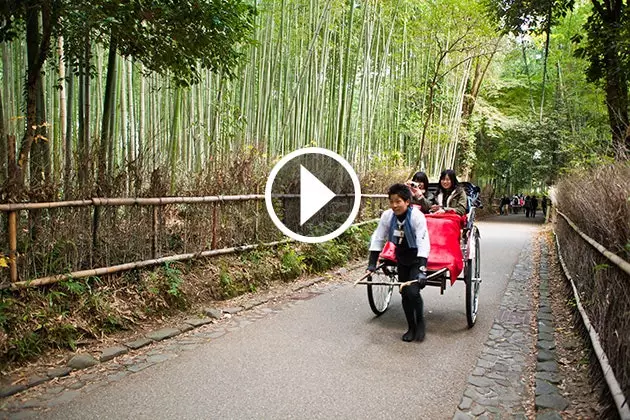
Don't worry, you're not the only one
You have just landed in Japan and you are overwhelmed with joy, one of your dreams is about to come true. You are finally going to visit the country that you have learned so much about through its books and movies. That place where history intersects with unprecedented futuristic technology.
You think you are prepared to meet samurai walking hand in hand with pokemons and, however, the first thing that strikes you is that, despite having given the Japanese a hard time before coming, you are not even able to understand the subway map to get to your new home. You ask a manager and, still smiling, he speaks to you in an English that you don't understand at all, although you tried to communicate in broken Japanese. Then the panic begins to shake your initial euphoria. Am I going to survive if I can't even buy a train ticket? The answer is yes.
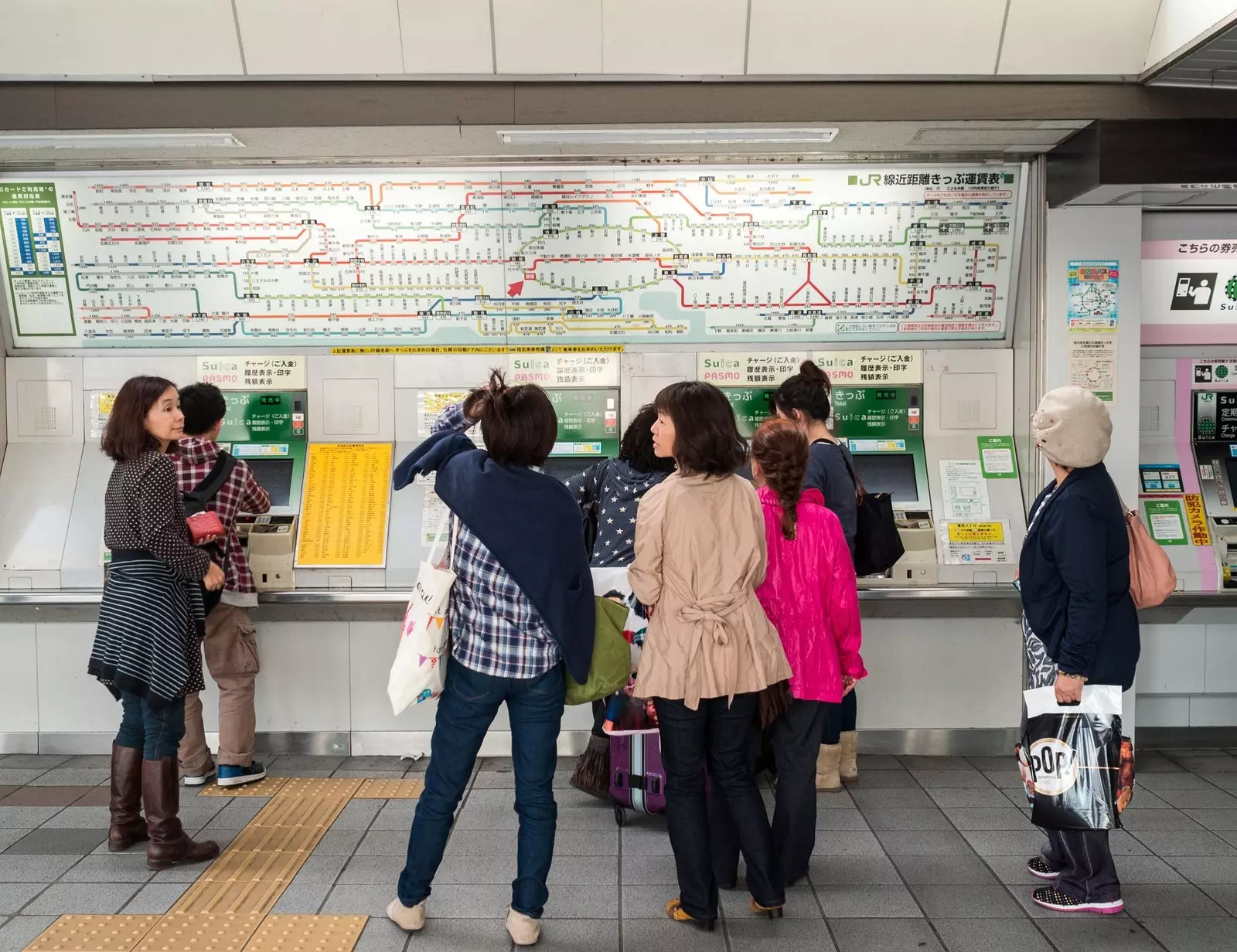
Don't worry, you'll end up understanding
IDIOM
It doesn't matter if you've studied the language for years or if you only know how to say hello ('konnichiwa') in Japanese. When you try to speak to a native of the country in their native language, **you will most likely receive a 'Nihongo Jozu disunite!' (You speak Japanese so well!) ** and a huge smile in response.
The Japanese are convinced that their language is the most complicated in the world and the simple fact of making an effort to speak the language of Murasaki Shikibu will delight whoever our interlocutor is, who will be encouraged to praise us.
At first this will make you very happy, your effort to learn the language of the country of the rising sun is paying off. Soon, however, you will realize that this phrase is said literally to anyone who can articulate a word in this language , still without knowing its meaning. Now, when you have gained confidence with a Japanese, he will be honest about your competition. Prepare yourself then for the harsh reality: you still have a lot to learn and your native friends are no longer afraid to say it to your face.
On the other hand, it doesn't matter how many years you spend in the country studying the language. Even if you get to hold conversations, reading and writing is another story: there will always be some kanji (Japanese characters) that will escape you. Then you'll want to throw your books out the window, realizing that you're going to need another ten years, at least, to be able to read a simple novel.
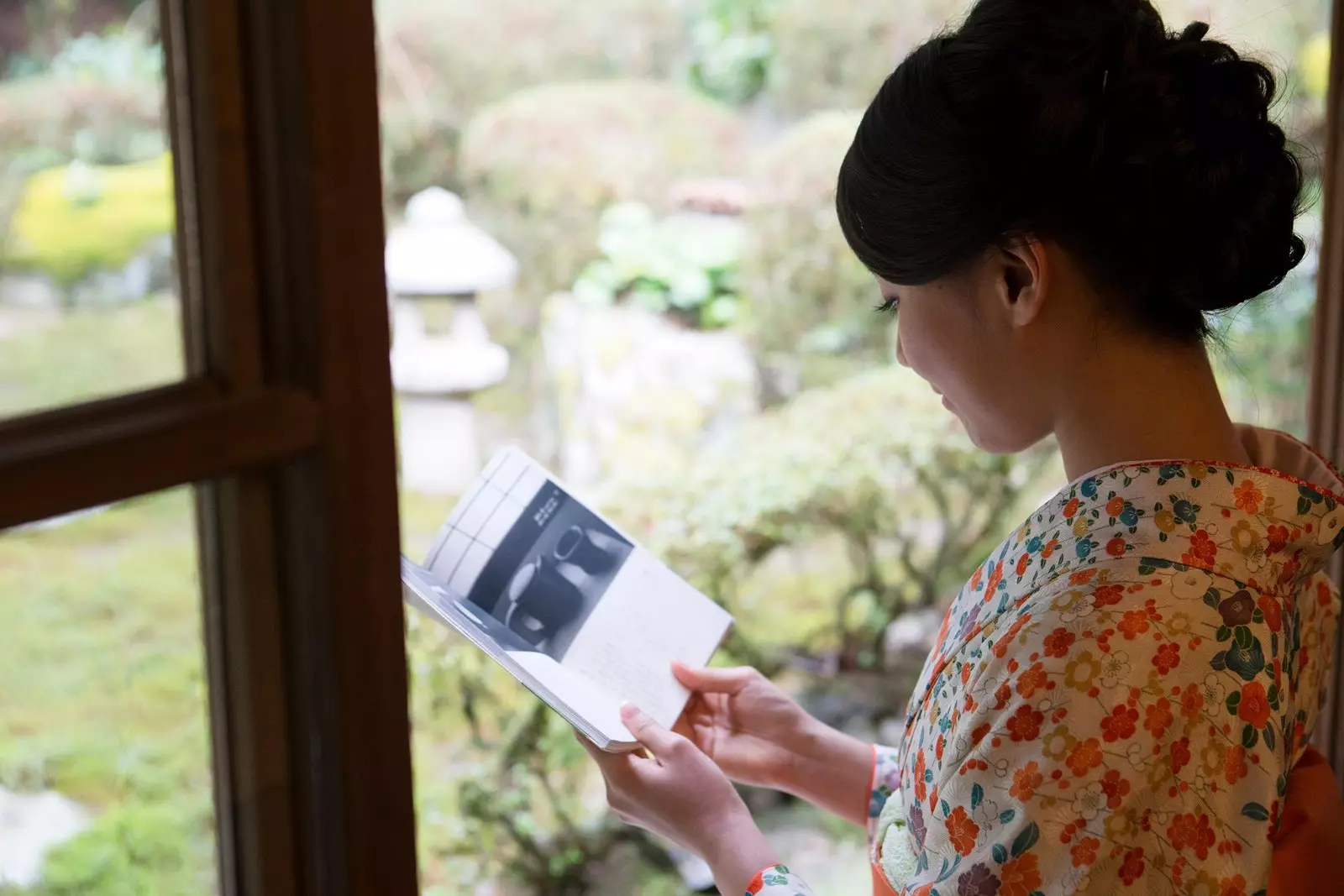
About reading in your language, for now we forget
GASTRONOMY AND MANNERS
In Japan we eat and have dinner much earlier than we are used to in our country. It may be a bit difficult for you at first the break to eat at noon is at 12:00 and many working hours continue until 5 or 6 p.m. (or longer, depending on your profession) . So, as soon as you leave your workplace you will be very, very hungry.
take note why any type of restaurant, izakaya (Japanese-style pub) or bar open at 5:00 p.m. , so you'll always have a choice if you don't want to go home and cook. In addition, Japan keeps its kitchens open until dawn, so if one day you feel homesick and want to have dinner at 10:00 p.m., you can do it. Yes indeed, soon you will discover the pleasures of lunch and dinner before and, probably, what it will end up costing you will be to regulate your body to the schedules of the peninsula.
And what if you're in a hurry and want a quick bite to eat on the go? Although it's not as rude as people think, considering that the Japanese make a big deal out of concentrating on what you're doing ('ichigyo zanmai' o ), it's not surprising that Eating while walking is seen as inappropriate, especially inside Buddhist and Shinto temples. The exception to this rule is in the season of 'matsuris' or festivals. In these cases, eating inside the temple grounds is perfectly fine, and not only that, it's even a must because the food is usually delicious!
Eating in Japan is a pleasure and almost 100% guaranteed that you will love its gastronomy. Yes indeed, get ready for raw food. Sushi in Europe is normally reserved for salmon and tuna, however, the amount of raw seafood offered in sushi restaurants in Japan is much wider. You won't know what real sushi is until you eat raw fish ovaries. The raw egg is also a very common condiment in the typical dishes of the country, just the opposite of what we do with the egg in the peninsula.
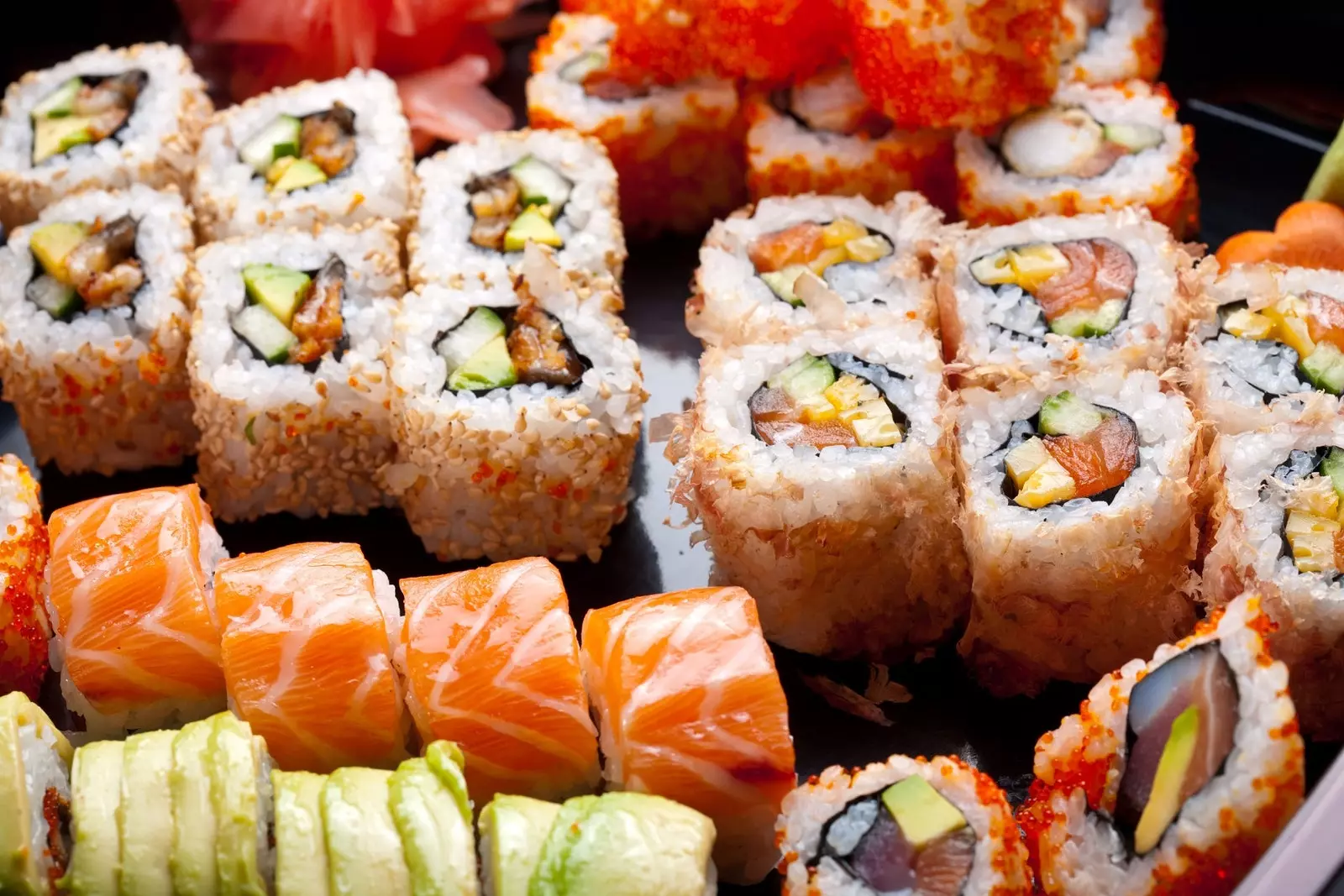
Sushi taken to another level
Despite the image we have of them, after a few tries you will be able to eat with chopsticks. It is much simpler than it seems. An advice, never leave your chopsticks stuck vertically in your rice bowl or pass food to another person from chopstick to chopstick . Both are customs that are related to funerals, and nobody wants to think about death when they are celebrating life and the stomach, right?
As for alcohol, In Japan, the legal age to consume alcoholic beverages is 20 years. However, most bars and pubs will not ask for your card, especially if you are a foreigner. If you are going to drink with a Japanese friend, you should know that the custom is that your companion refills your glass. Yes, watch out for this. Westerners in Japan are famous for having an infinite tolerance for alcohol. Although it is true that, compared to most Japanese, our body tolerates this substance better, if we let ourselves be carried away by the enthusiasm of our friends shouting 'Douzo! Nonde!' (something like 'Come on! Drink!') the night may get out of hand.
Indeed, smoking in the street is prohibited almost everywhere , except in designated areas. Instead, smoking in bars and restaurants is still legal and very normal , so your clothes are probably going to return to that familiar post-party tobacco smell.
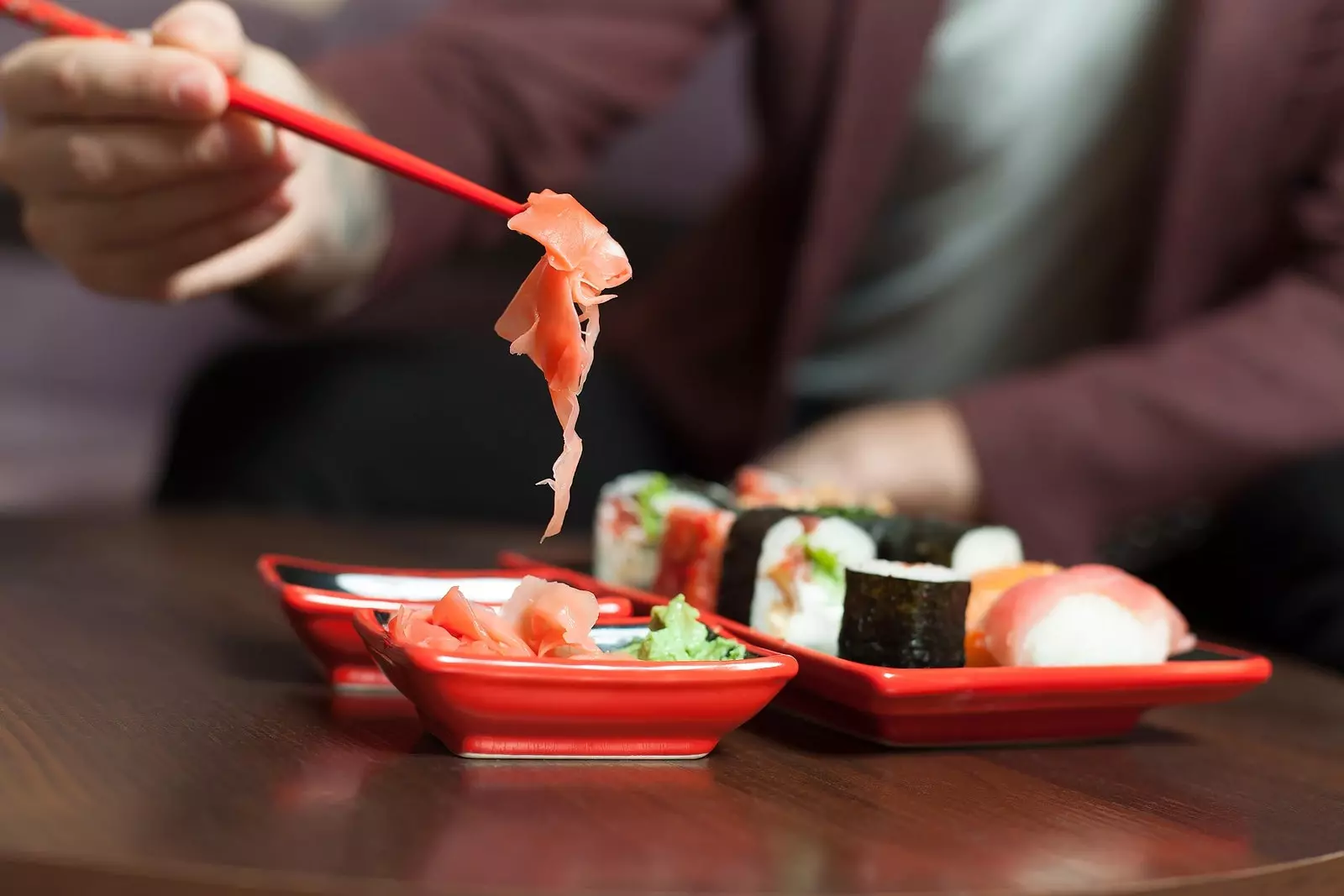
Is easier than it looks like
THE SERVICES SECTOR
In Japan, it takes to another level that of treating the client the best possible . Moreover, we may end up with the hat of this installment to which we are not used to. To begin with, in any type of store, the service will welcome us as many times as necessary, it will remind us almost loudly of the day's offers or You'll thank us for being in the store every time we walk past you in the aisle. (even when we think they haven't seen us) .
If we buy something, they will ask us if what we have brought to the box is what we want to buy (although we think it is quite obvious), they will repeat the price of the item when passing it through the cash register (even if we see it marked on it) and they will thank us another dozen times, with all the bows they can, for having chosen their store. If you have purchased clothes, we better be prepared to be asked if the size we have chosen is suitable for us, making us feel somewhat uncomfortable.
As for the treatment in the restaurants, as soon as we enter we will also be welcomed and we will be asked how many people we are, almost like a ritual. After eating and paying, it is quite common that they walk us to the door to, once again, thank us for having chosen their premises and ask us to visit them again. Japanese friendliness is legendary and known worldwide, although after a few months in the country you will wonder what is real behind so many smiles. You just be polite and they will respond with a smile from ear to ear.
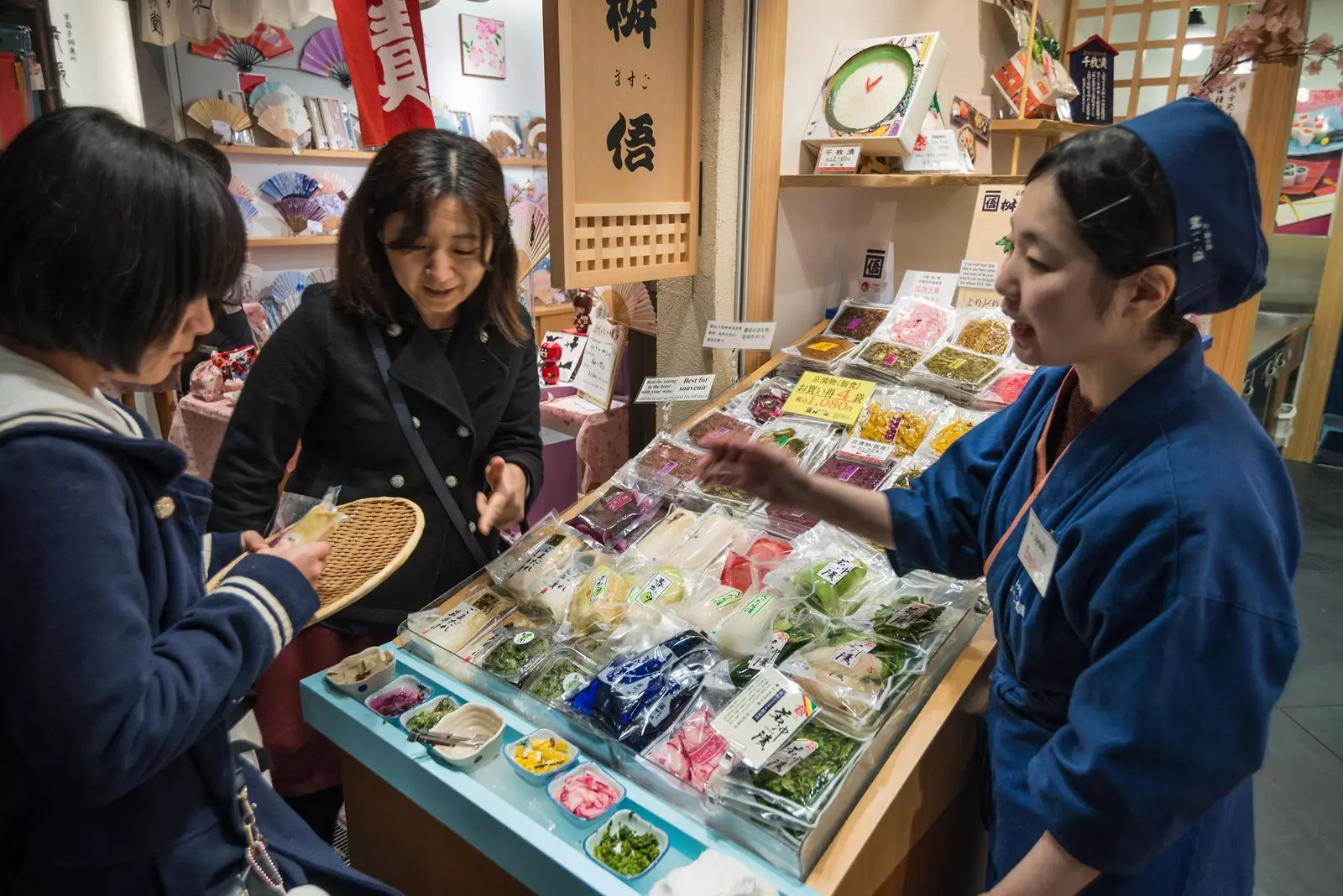
Customer service cubed
COMBINIS OR 24-HOUR CONVENIENCE STORES
These stores that they sell almost everything and are open all day and all night They will become your best allies. Whether you need bread in the morning and are too lazy to walk more to go to the supermarket, or if you need to withdraw money or buy some socks, these stores have all that and more. The three main chains are Seven Eleven, FamilyMart, and Lawson. Once you know about their existence and how comfortable they make your new life, you will wonder how you managed to survive without them until now and they will be one of the maximum culprits that you no longer know how to survive every time you visit your homeland.
TOILETS
Who has not heard of Japanese toilets? It's almost the first thing every newbie in Japan wants to experience. And, indeed, they will not leave you indifferent. In the first place, because, no matter where you are, most are cleaner than your own bathroom at home. Second, because walking into a modern Japanese bathroom is like walking into a time machine from Doctor Who: buttons and lights everywhere.
If it is winter, as soon as you sit down you will notice the warmth that emanates from the seat, a true luxury for the buttocks. And what are all those switches for? Some make music, others allow you to call someone in case something happened to you while you were in the bathroom, but the most impressive are the ones that activate jets of water to clean you. One piece of advice to keep in mind, make sure you choose the lowest possible jet pressure, because otherwise you will feel somewhat violated by a toilet.
Not everyone knows that these toilets that seem to have a life of their own are quite recent. In Japan, the traditional toilet is more like a hole in the ground. These types of services are still quite common in some places, like stations or more traditional bars , so it will not be strange that you end up using it. Most Japanese, especially the older ones, like this style better. As a side note, having introduced the 'Western-style' toilet after WWII, signs explaining to the unsuspecting how to use them are quite common.
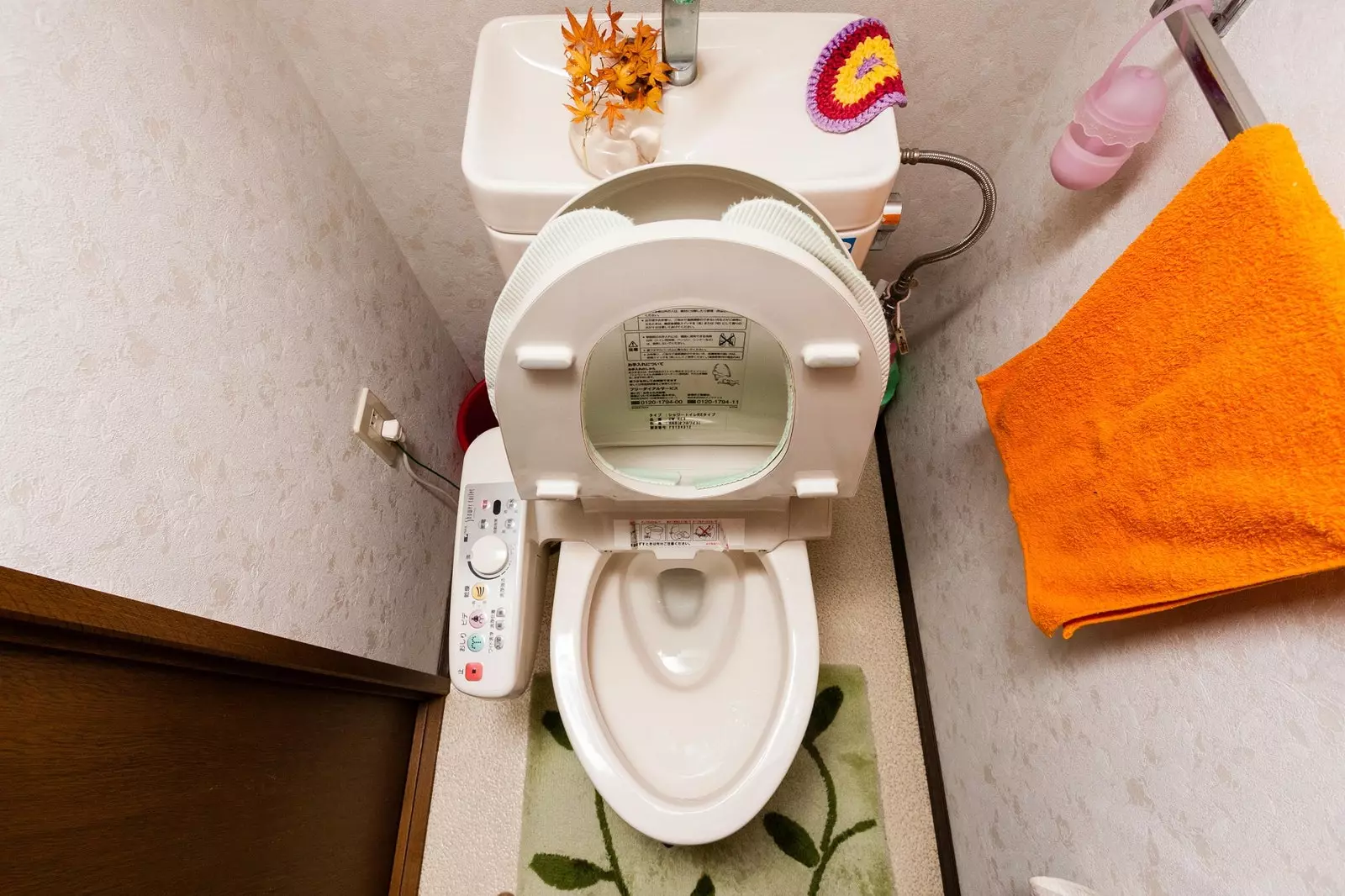
What do we do with all these buttons?
THE TRASH
The first time that, walking down the street, you want to throw something in the container, you are going to get another surprise. In Japan, there are no garbage cans almost anywhere. Unless you go to one of the combinis, you are going to have to put whatever you want to get rid of in a pocket or wherever you can.
The truth is that until 1995 street garbage cans were common on Japanese sidewalks. It was in that year that the Aum Shinrikyo sect perpetrated the sarin gas attack that left Japan traumatized for life from potential terrorist attacks. Considering that garbage cans are an ideal place to hide a bomb or any type of harmful device, the government decided that the way to reassure the population was to eliminate litter bins in the streets. Amazingly, or maybe not, the lack of trash cans made Japan a much cleaner place Well, not having a place to leave their garbage, people began to take it home and throw it in their personal containers.
The garbage situation in your own home is not going to be much better. Although the level of demand in the subject of recycling is different depending on the area of Japan where you are, in big cities you will almost have to study a master's degree on garbage to understand how you have to dispose of it. Mondays can be for cans, Tuesdays for glass and clothing, Wednesdays for plastics... and, although organic waste can normally be thrown away any day of the week, you better make sure, because there are quite expensive fines for those who do not dispose of their waste correctly. Good luck!
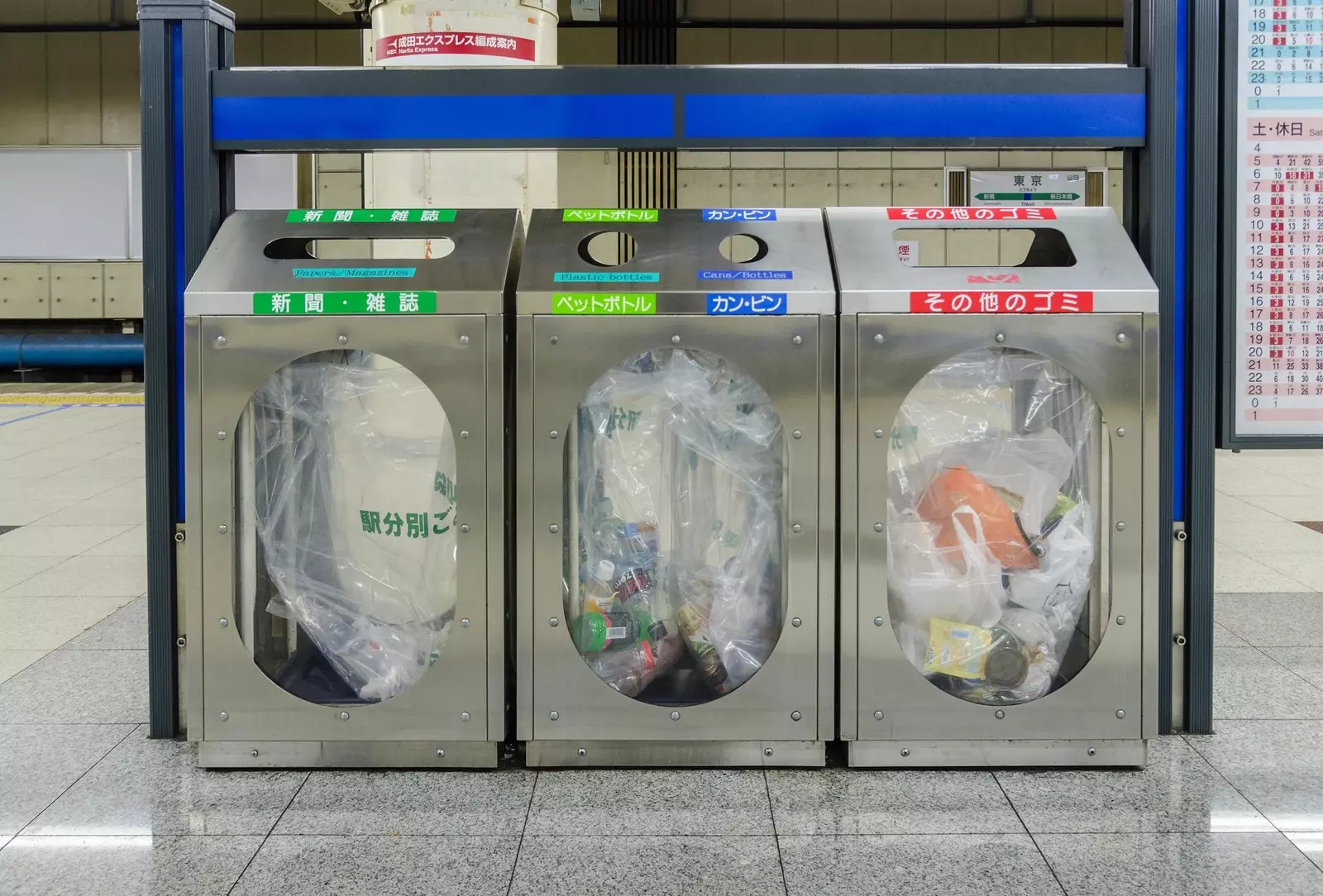
New master in sight: to learn to recycle
SEATS TO SIT ON THE STREET
There is another thing that the Japanese streets lack: benches to sit on. You probably won't realize it until one day you want to stop for a snack and realize you have nowhere to go. There are varied reasons for this shortage of urban seating. On one side, in Japan there is historically no idea of using public space as a place of leisure. The street is used for moving around, so for the Japanese, placing a bench on it is more of an impediment than a positive.
When a Japanese wants to sit down and talk, he goes to the park, a restaurant or a coffee shop. It was not until after World War II that the concept of urban furniture began to appear as something more common in Japanese thought. Although slowly parks and recreation areas begin to have more seats, the lack of money from the government and of empathy towards the homeless, who are feared to use the benches as beds, continues to delay its appearance.
THERE IS NO WIFI ALMOST ANYWHERE
It seems incredible, but it is so. In the country where the world's first humanoid robot was born, it is almost impossible to find free wifi in squares, libraries or even cafes. Although in some places Wi-Fi zones do exist, in most You have to pay to use them. No one knows very well why this is so, perhaps because everyone has had Internet on their mobiles for years and pocket wifis (pocket routers) are the order of the day. In addition, telephone companies have been offering internet flat rates to their customers for years.
What is most advisable? Use the internet from our house or, if we really want to use the internet in an establishment in the city, go to one of the s big chains or buy one of those pocket router that can be used as internet for mobile and computer.
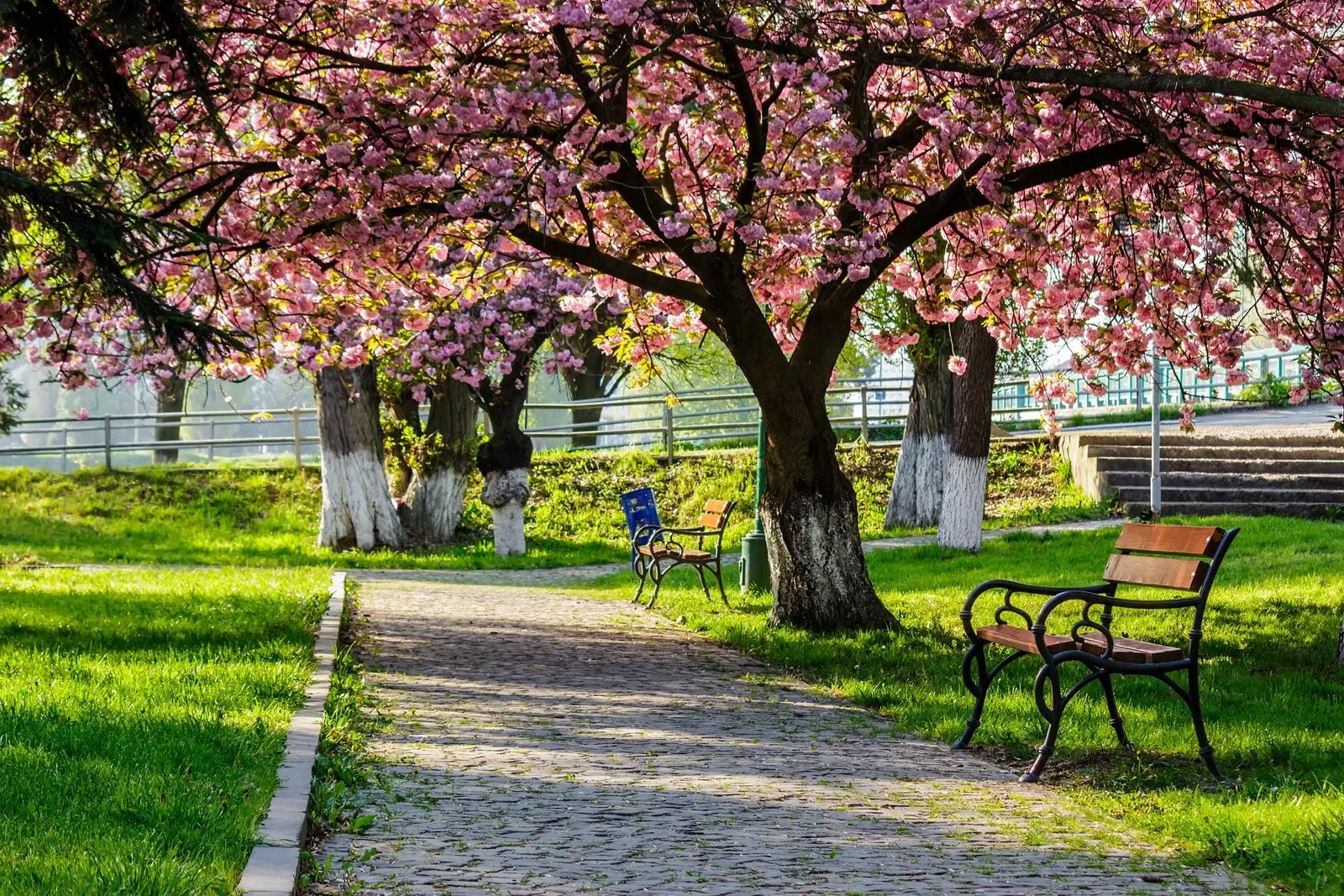
The hardest yet: finding a bank in Japan
THE DOCTORS ARE GOING TO GIVE YOU MORE THAN ONE HEADACHE
It's not just a language problem, and that now you'll have to pay to go, most doctors in japan don't know how to deal with foreigners and they almost panic when you arrive at their office.
No one knows very well why, if our metabolisms are really so different from those of the Japanese that doctors don't know how to act, if it is a problem of xenophobia (the gossips say that Japanese doctors are convinced that if we go to the doctor is just an excuse to miss work) or lack of understanding. The truth is that, if unfortunately you have to go to the doctor, you will find lots of weird faces and few solutions.
It is not uncommon to tell your doctor what is happening to you and for him to answer you with a question such as 'What do you think it is?', when, obviously, he or she is the professional. More than one expatriate has had a good scare due to poor care from the hospital.

Don't look for wifi, there isn't
THE WEATHER
Japan has four well-defined seasons, something of which its inhabitants are very proud, to the point of being convinced that they are the only country with such quality. **Spring, with the 'sakura' (cherry trees) in full bloom, and autumn with the 'momiji' (or the reddish colors of the trees)**, make these two seasons the most beautiful. In addition to the friendliest in terms of temperatures.
Winter and summer, however, are hard to beat. Both are pretty extreme, but summer, especially, with very high levels of humidity and temperatures that are not far behind, is very difficult to bear. If we add to this that there are hardly any public swimming pools, there is only one week of vacation in August and the beach is considerably far away, summer will surely cease to be your favorite season.
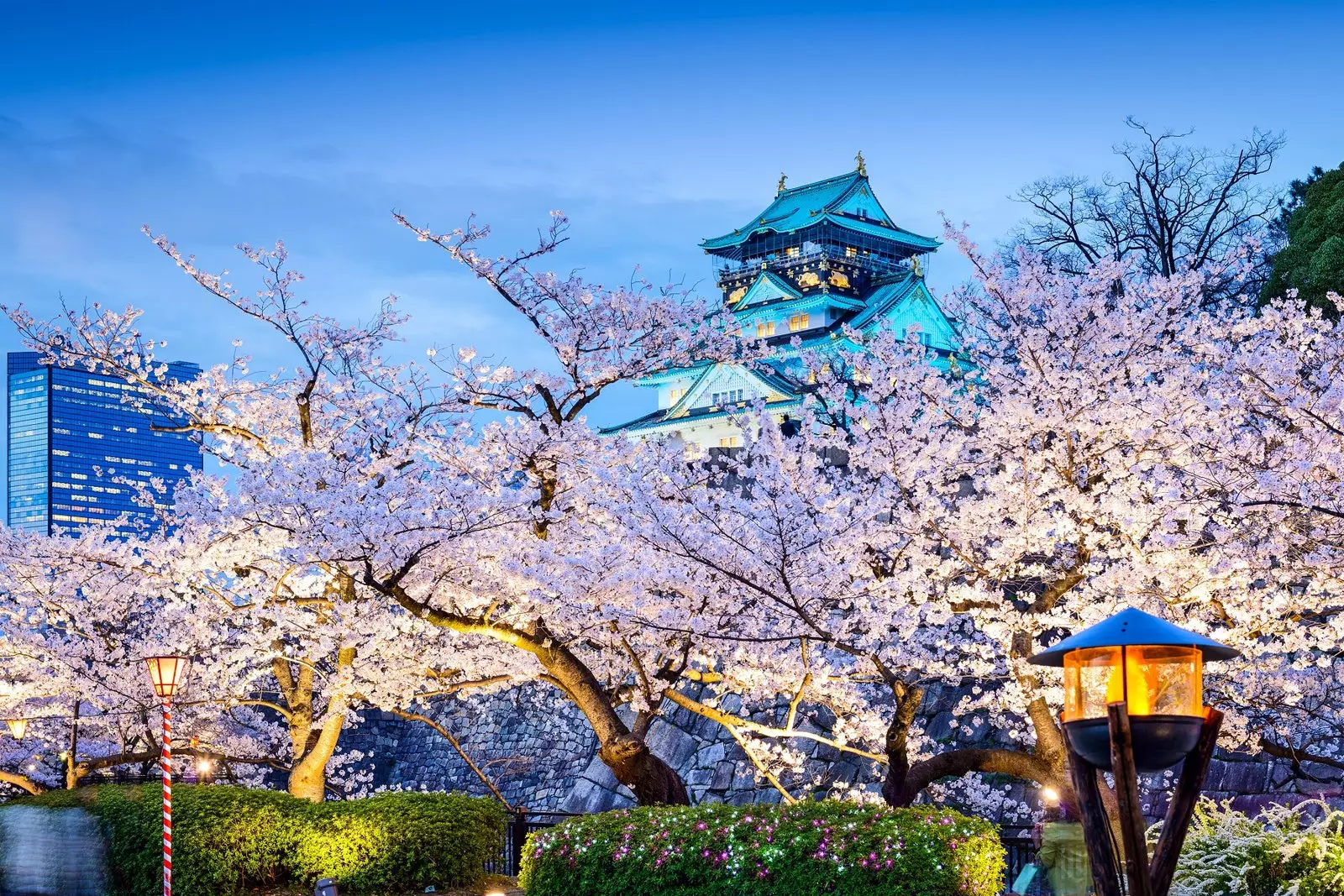
Spring with the sakura will be one of your favorite seasons
